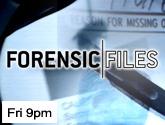By Seamus McGraw
April 18, 2006
PURCELL, OK. (April 18, 2006) — If recent history is any barometer, efforts by Kevin Underwood's attorney to slap a gag order on the cops and lawyers involved in the case, will do little to quell the public's appetite for details about his alleged abduction of a ten-year-old Oklahoma girl whom police say he raped, murdered, and planned to cannibalize.
 |
| Kevin Underwood |
At a brief but emotionally charged court hearing Monday, Underwood's court appointed attorney complained about "inflammatory, prejudicial, and conclusory statements," made by prosecutors and police about Underwood's alleged activities and his statements, and asked Special District Judge Gary Barger to impose a gag order in the case. A hearing on that request is scheduled for later today. Prosecutors are reportedly unlikely to object.
If granted, the gag order would effectively bar prosecutors, investigators, and defense attorneys from speaking to the media about the case outside of court and court filings. Defense attorneys in high profile regularly seek — and receive — such orders in an effort to stem what they view a steady drumbeat of sensational — and often selective — leaks which could taint a potential jury pool. A gag order was issued after Ben Fawley, the 38-year-old photographer was arrested and charged with the murder of Virginia Commonwealth University freshman Taylor Behl last year.
But often, instead of ending speculation and the spread of shocking and salacious details, gag orders often drive the discussions underground, most often on to Internet weblogs where the most shocking allegations are repeated and dissected until they are effectively trapped in amber. The upshot is that those most disturbing elements of the story — usually those that surface earliest — remain in the public consciousness.
Next Page
For more daily crime news
Kevin Underwood / Jamie Bolin Full Coverage
Jamie Bolin/Kevin Underwood Message Board

 default
default increase
increase decrease
decrease

 email
email print
print

